Jonah Leher appeared on The Bat Segundo Show #448. He is most recently the author of Imagine: How Creativity Works.
Listen: Play in new window | Download
Condition of Mr. Segundo: Brown-bagging his imaginative faculties.
Author: Jonah Lehrer
Subjects Discussed: Continuum’s development of the Swiffer, Shakespeare, whether creativity that originates from theft is acceptable, Bob Dylan, conceptual blending, efforts to defend aerosol cheese spray, bacon cocktails, Dick Crew, Don Lee, Oliver Wendell Holmes, Alex Osborn and brainstorming, Pixar management techniques, Mike Daisey, when storytelling gets in the way of the facts, Milton Glaser and the beginnings of I ♥ NY, the creative possibilities of Benzedrine, WH Auden’s poetry, Angela Duckworth, attempting to make banal chapters, Brian Uzzi and Jarret Spiro’s work involving the Q rating, “Collaboration and Creativity: The Small World Problem,” Y combinator startups and Broadway musicals, not bringing up Stanley Milgram, comparisons between Lehrer and Malcolm Gladwell, small world theory and hit plays, Charlan Nemeeth‘s idea of dissent’s relationship to creativity, Lehrer sandwiching dissent and complacency, “Managing Innovation,” Steve Jobs tearing people apart at Pixar, Pixar’s plussing approach, the middle ground between brutal honesty and egalitarianism, Ray Oldenburg and third places, Pixar and Lehrer’s liberties with third places, the Santa Fe Institute, Geoffrey West and Luis Bettencourt building an equation based on urban variables, why Lehrer placed the Homebrew Community Club into the city-based West/Bettencourt model, Silicon Valley vs. New York, Tom Wolfe, California’s non-compete clause, the Duncker candle problem, functional fixedness, Robert Adamson, leaving the country to solve a problem, William Maddux and Adam Galinsky’s “Cultural Borders and Mental Barriers,” why Lehrer doesn’t use the exact nomenclature to describe science, the origin of Post-Its, Lehrer avoiding the term “functional fixedness,” avoiding terms to attract a larger readership, the problems with mashup methods, responding in depth to Tim Requarth and Meehan Crist at The Millions*, Eric Kandel’s The Age of Insight, the fMRI and the insula lighting up, the dorsolateral prefrontal cortex, and being hamstrung by the popular science medium.
EXCERPT FROM SHOW:
Correspondent: You put on the glasses. Have you always worn glasses? Because I noticed that was the new cover photo for this. Whereas before you didn’t have glasses.
Lehrer: Oh, I’ve been blind for a long, long time. Maybe — I forget. Maybe the photographer had me take them off.
Correspondent: They asked you to take them off. I was always curious.
Lehrer: No, no, no.
Correspondent: I didn’t know if it was a new mild-mannered Clark Kent look or…
Lehrer: No, no, no. I can assure you that these glasses actually work. They help me see.
Correspondent: Good. I’m more visible for you. That’s reassuring. Let’s go ahead and get right into it. Your book opens with this story of Continuum observing an elderly woman who is wetting a paper towel and wiping the remaining coffee grounds off of the linoleum as she was cleaning. This, of course, leads to the development of the Swiffer. Near the end of the book, you point out Shakespeare. He had a tendency to comb through the many books he read to find stories that he could use for plays and so forth. So it would seem to me — just to establish some terms from the beginning — that much of your notion of creativity involves the theft of ideas. That if you have financial or intellectual resources and you’re able to go ahead and pluck them from somebody else, then hey! You can be creative! So how is profiting off of another person’s idea a form of creation? Or art? Or what not?
Lehrer: I’m not sure I’d call it straight theft. I think Dylan actually has — I talk a lot about Bob Dylan in the book.
Correspondent: Yes, you do.
Lehrer: And he’s got this wonderful phrase where he describes his process as one of love and theft. That first you fall in love. Whether it’s a Woody Guthrie-style. Whether it’s a Robert Johnson riff. Whether it’s, say, old Irish lullaby from Ireland which you turn into “Blowin’ in the Wind.” So you love it and you love it. And you try and understand it and map out the intricate details and connections and then you steal it. And you make it your own. So this isn’t straight theft. This is, in theory, Shakespeare, who, as you point out, was doing pretty well for himself. He came from very humble beginnings. His father was a glover. He signed his name with a mark. But he did his dad proud and made lots of money. So he didn’t just steal Hamlet. He didn’t just steal the plot for Romeo and Juliet. And he didn’t just steal almost all his plots. Shakespeare did not like inventing his own stories, of course. He made them his own. He reinvented them. I think it’s the same thing Bob Dylan did with that Robert Johnson riff. It’s the same thing Continuum did with watching that elderly lady wipe up the coffee grinds that they actually spilled on her floor. That she didn’t invent the Swiffer. They invented the Swiffer. That triggered an insight which then led them to combine the mop, which they spent nine months studying and realizing that mopping’s a terrible idea. Because you spend more time cleaning the mop than you do the actual floor. And in that, her simple act, I mean, they had all done themselves countless times, simply triggered their breakthrough. So in a sense, I mean, I think you’re right to point out that all creativity involves a theft from somewhere. I think creativity is ultimately just a new connection between old ideas. So you are in the most literal sense thieving ideas which already exist. But the connection itself is new. At least it should be new. If it’s not new, then it actually is straight up theft. And that’s not the kind of creativity I’m interested in.
Correspondent: What is the creativity you’re interested in? Because I want to actually distinguish from an elaborate or high-class pickpocket. You know what I mean?
Lehrer: Yeah. You know, I think it’s very easy to get lost in lots of circular discussions about how to define creativity. I think creativity, as far as I’m concerned, is a bit like porn. You kind of know it when you see it.
Correspondent: Oh yeah?
Lehrer: Yeah. Or at least that’s what the Supreme Court says. You know, I think creativity is just the invention of something new. I’m not saying new in some kind of pretend sense. I’m saying something genuinely new which doesn’t exist in the patent office, doesn’t exist in the world, that other people find useful. So that’s as fancy as I get in defining creativity.
Correspondent: Well, let’s get into conceptual blending, which you get into. People exchanging ideas across different disciplines. When you take two concepts and mash them together, which seems applicable to this notion of what is creativity, I mean, it has given us some regrettable and fairly negative ideas. I think that we can both agree that aerosol cheese spray, the car alarm, telemarketing, the Pet Rock.
Lehrer: Yes. Oh come on.
Correspondent: These are things that also come from conceptual blending. So…
Lehrer: Aerosol cheese spray? I’ll go with you on the Pet Rock, but Cheese Whiz? That stuff in the can? That fueled me for much of my childhood.
Correspondent: Yes. “Childhood” being the key.
Lehrer: (laughs)
Correspondent: We’re talking about adulthood.
Lehrer: Okay. Okay.
Correspondent: I mean, we’re talking about ideas that really changed the world. That really have a revolutionary impact. Such as the iPhone or something like that. I mean, you commend Dick Drew as this innovator. And I’m fairly certain that a lot of terrible ideas have also come from 3M. And with the bartender Don Lee, you point out that most of his experiments were utter failures. His attempt to carbonate a cherry didn’t exactly work.
Lehrer: Yeah. And even his Bacon Old Fashioned is very divisive. Like I’m not sure how I feel about it.
Correspondent: Have you tried it?
Lehrer: I have. The first sip is delicious and then it’s kind of unsettling. I think it’s more about my limitations as a consumer than as an eater. And a lot of people don’t like it. So that’s a…
Correspondent: Well, who ultimately determines whether it’s creative or not? I mean, I can just go ahead and spend an evening being completely stoned out of my mind and come up with stupid ideas and that can also be conceptual blending.
Lehrer: Yeah.
Correspondent: I mean, what is the distinguishing quality here?
Lehrer: Well, that’s why I think when defining creativity, one has to invoke the second life of the idea. One has to invoke this notion that it has to be useful to yourself and other people. So you know, one of my favorite stories and moments of insight — I talk about moments of insight in Imagine and the neuroscience of it. And why they happen when we least expect it. But there’s this great story of an insight by Oliver Wendell Holmes when he first took laughing gas for the first time. And he’s stoned out of his mind. High as a kite. While high as a kite, has this big epiphany. He solved the world. This grand solution. Writes it down on a cocktail napkin. And they can’t find the cocktail napkin. And he wakes up the next day. He’s hungover. Searches everywhere. Finally finds a cocktail napkin. So excited to read it. And what it says is: “The world smells like turpentine.”
Correspondent: Yeah. But there are failed economic theories that are also written on cocktail napkins. You know what I mean?
Lehrer: Yeah, yeah, yeah. No, no. So that’s why I think one has to separate the phenomenology of the idea. To use a ten dollar word. Like the feeling of the insight. Like “Oh my god, I made this great connection.” And I think we’ve all had the experience — many of us have had the experience of being stoned or high and being “That was such a brilliant epiphany.” Then you wake up in the morning and you realize it’s useless. So I think when talking about creativity, one should talk about the second life and hopefully not just in the brute financial terms. I don’t think we should get in the business of just measuring creativity by how many books you sell or whether or not it can be monetized. Etcetera etcetera. But we should talk about the second life. Cause that I think is the ultimate way our ideas are measured.
Correspondent: Well, to go ahead and get into some of what you write in the book, late, you write that Alex Osborn’s idea of brainstorming was in fact wrong. That’s been pointed out by numerous people. Why then does your book skim over the really terrible ideas? I mean, how do we reconcile Osborn with the Carson/Peterson/Higgins study involving 86 Harvard undergraduates in which those who considered the irrelevant details were seven times more likely to be rated as “eminent creative achievers”? Now being ranked as an “eminent creative achiever” is a lot different from, oh say, inventing the iPhone or coming up with something that is actually helpful.
Lehrer: Of course. So their ranking of creativity — and what I liked about this study is that it was real world creativity. A lot of limitations of the way scientists study creativity are creativity tests. So it’s tests on divergent thinking, coming up with uses for a brick, finding ways to study traffic in the Bay Area. Stuff like that. But it’s not about the real world. So what I liked about that study was that it was real world achievement. So to get back to your question about why I don’t spend a lot of time on the failed ideas….
Correspondent: Because that would seem to be important, you know.
Lehrer: Well, one of the subplots in the book — at least that I tried to engineer into the book — is this notion that there’s no success without failure, that one of the defining features of successful creators is the way they’ve learned how to fail successfully. One of my favorite lines in the book is Lee Unkrich’s quote — the director of Toy Story 3 — about the secret sauce of Pixar is failing as fast as possible. You know, you go through iteration after iteration. So I’ve got that whole chapter on the importance of revisions and drafting and the conceiving process and going through drafts, looking for your failures, and trying to fix them. So, you know, hopefully I’ve made it clear that all good ideas emerge from the litter of lots of bad ones and that even the best epiphanies, you still have to edit them. You still have to fine tune them and perfect them. So hopefully it’s implicit in the book that part of coming up with a good idea is this entangled relationship with bad ideas. As for why I don’t talk a lot about failed ideas in the book, why I don’t harp on those inventions that never work, I don’t know. I mean, to be honest, I’m sure as a storyteller, it’s easier to tell stories of success. That’s what interests me more. No one wants to buy a book that’s all about…
Correspondent: You’re more of a Mike Daisey type than a New York Times guy?
Lehrer: How’d I go from wanting to tell success stories to being a Mike Daisey type?
Correspondent: Well, because we’re talking about facts vs. storytelling. Which is an ongoing debate especially in 2012. With John D’Agata and Jim Fingal’s The Lifespan of a Fact. With Mike Daisey.
Lehrer: Well, what are facts vs. storytelling?
Correspondent: The point I’m trying to make here is if you are telling a story where everything could be a conceivable success, I mean, there are some things that are inevitably failures. John Carter is probably by every standard a failure. It’s lost more money than any movie.
Lehrer: Yeah, but how does that? To get back to your question about facts and stories, how does that — I’m trying to talk about creativity and where it comes from. I think that one of the defining features of creativity — like I said before — it’s a new idea that people find useful. So there are obviously lots of ideas which people don’t find useful. Lots of failed ideas. In my book, I try to make clear that failure is a part of the creative process. One should learn how to deal with it. But one doesn’t have to write a book about creativity to talk about all the bad ideas that don’t work out. That would be a very, very, very, very long book, and I think fairly incoherent. So that’s why most of the stories I tell in the book are stories where, because that’s part of what creativity is, that’s how I define it. It’s a new idea that works. So I tell the story of new ideas that work.
Correspondent: Okay.
Lehrer: But I don’t quite understand how that means I’m Mike Daisey.
Correspondent: Well, because Mike Daisey took facts to fit his larger narrative. And while from a liberal standpoint, I suppose you could argue that looking at Shenzhen, even if the facts aren’t entirely airtight, might be a good idea, there’s still…
Lehrer: Well, which facts am I eliding to make my larger narrative? I guess that’s my…
Correspondent: Well, when you say you can learn from every failure and there’s a success from there, I don’t know if that’s entirely the truth.
Lehrer: I’m not saying you can — I don’t say that anywhere in the book that all ideas are created equal. In fact, the whole point of why brainstorming doesn’t work — you brought up Alex Osborn’s failed idea — is that it treats all ideas as equal. I mean, the whole point of brainstorming is all ideas are useful. All ideas are good. And as I point out, the reason brainstorming doesn’t work is because groups that engage in criticism and debate and dissent, groups that point out, “That idea is actually a piece of shit,” they do much better. They come up with more ideas and those ideas are better. So hopefully a theme of the book, as I’ve been trying to make clear, is this notion of being honest about which ideas are good and which ideas are bad, identifying failures and fixing them, and out of that process, which is often dismal and unpleasant and insufferable, out of that long process, you will hopefully get a good idea. But there is no shortcut around it.
Correspondent: You talked with Milton Glaser, the graphic designer who came up with the I ♥ NY logo. You mention WH Auden and how he was hopped up on Benzedrine to produce his poems. You say that it was persistence, this determination to solve the problem of how to rehabilitate the image of New York City, which led to Glaser’s solution. But aside from Earl Miller’s recursive loop, his dopamine findings, I’m curious what science you have to back up this idea of the value of persistence to the creative mind. I mean, is it not possible that maybe Glaser’s idea caught on because, well, New York was kind of stuck with it? Because I ♥ NY was everywhere? Know what I mean?
Lehrer: Yeah.
Correspondent: And also there’s this troubling idea of, well, do we have to be hopped up on Benzedrine to be a poet?
Lehrer: No, no, definitely not. As Auden himself would discover, there’s a reason why Benzedrine is now illegal. We no longer prescribe it for asthma. It’s incredibly addictive and, as I point out in the book, comes with all sorts of terrible side effects like horrible constipation, insomnia, and heart arrhythmia, and you definitely don’t want to advocate Benzedrine, no matter how much you need to edit your poetry. In terms of the science on persistence, yeah, there’s a lot of interesting research. A lot of which has nothing to do with the brain, at least not yet. Which I think demonstrates that persistence — the technical term for persistence that psychologists study is grit. This is primarily the work of Angela Duckworth. She’s at Penn. I’m actually writing about her now. Writing an article about her. She’s shown in many domains that grit is the single biggest predictor of success. More than IQ scores. So if you’re trying to figure out which 12-year-old will win the National Spelling Bee, it’s about grit. Who’s going to last at West Point? It’s about grit. Who’s going to last at Teach for America? Which amateur golfers are going to make the PGA tour? She argues that grit also plays a very important role in the creative process. She always quotes the Woody Allen line that 80% of success is showing up. Well, grit is what allows you to show up again and again. The two components of grit — and it’s important to point out, it’s not just about persistence. And I think this is an important caveat. It’s not just about persistence. You also have to have the right goal in the first place. So I may want to play in the NBA. But you’re looking at me. It’s not going to happen. So I have to have someone tell me early on hopefully that all the grit in the world, all the persistence in the world, won’t turn me into Spud Webb. Find a different goal. So I think sometimes one of the problems we have is we’re not willing to help people — you know, dreams will come true if you simply try for it. That kind of talk. It sounds really good, but it’s not entirely honest. And I think we need to be honest about it not being honest.
Correspondent: Now that’s a completely reasonable assessment. Why then would you put WH Auden on Benzedrine then in the book? And is this sort of the worst case scenario? Even though he ended up coming up with a number of great poems. If we’re talking about reasonable applications of what we’re talking about here for people to find their creative roots, why would you go for these more extraordinary examples?
Lehrer: Why I chose that in particular?
Correspondent: Yeah. I’m just curious. Why did you include a Benzedrine addict? Genius as he may very well have been.
Lehrer: Sure. To be honest, the reason I chose Auden is because I’ve long been an Auden fan. I’ve always been fascinated by why you look at his most anthologized poems — and my favorite Auden poetry is actually his late poetry. So absolutely after he weaned himself off Benzedrine, and that was a brutal process, but I actually like “In Praise of Limestone” — his later poetry — which is a little messier, a little more chaotic, a little more personal. But if you look at his most anthologized poems, they really come from this three year window when he was really on Benzedrine, “September 1,” “In Memory of Yeats,” etcetera etcetera. And I was interested in why that is. What allowed him to, in this narrow window, produce poems that were spare and precise and transparent and really, really popular and have resonated with people for decades. And so that’s why I chose Auden. Both because I liked the man and I have this lingering interest in this particular phase of his career. So that’s why I chose him. I wasn’t trying to pick an extreme example. You know, for me, it was the storytelling challenge in this chapter was — in the end, the point I’m trying to give readers is incredibly banal. And I’m sure that — I think most readers will realize that, in the end, the point of that chapter is “Sometimes you have to work really hard.” Not the most exciting idea. And so for me, the reason I chose Auden is cause drugs, Benzedrine, and that struck me as a slightly more interesting way to, in the end, make this point that creativity is also about hard work. And Milton Glaser’s motto says it best. “Art is work.”
Correspondent: But wait a minute. If the underlying point of the chapter is banal, then why stretch out a chapter? I’m not saying that…
Lehrer: Well, because that’s an important part of the creative process. I wish I could write a book in which the whole point was “Take showers when you’re stuck.” Get relaxed. Which is part of the process too. I think there’s good evidence for that. But when you talk with creative people, and I’m trying to tell the story of creativity as I see it from talking to people in the business and from the perspectives of scientists who study it. A big part of creative success is showing up, is putting in the work, is going after the drafts. That’s not the sexy stuff. But that needs to be in there too.
Correspondent: But isn’t it your job to sex it up, Jonah? I mean, you’re a guy — we were cracking up about aerosol cheese spray, right?
Lehrer: Oh, I do my best to sex it up. Which is why I begin the chapter by talking about Benzedrine. That was my attempt to sex up a very banal chapter. Hopefully the chapter itself isn’t banal. The idea in it is — you know, if you’ve ever done anything worthwhile in your life, you know it takes work, right? So my challenge as a storyteller in that chapter was, gosh, I’ve got to put this in here. Because that’s a huge part of the creative process. There’s no getting around it. But how can I make it interesting? I can’t just talk about hard work. That’s a chapter I wouldn’t want to write and people wouldn’t want to read. So the way I begin it is by talking about this poet who is an incredibly talented poet. I’m not saying that if we all take Benzedrine, we’ll pump out “September 1st, 1939.” Having dabbled in amphetamines myself, all I got out of it was several nights of insomnia. But I think it does, within the context of Auden, help show how this drug modulated his poetry a little bit.
* — In The Millions‘s comments, Lehrer responded to a lengthy criticism of Imagine offered by Requarth and Crist (namely, Lehrer criticizing the limitations of fMRI in a Wall Street Journal column, while simultaneously relying on similar data elsewhere):
I honestly can’t cite a popular brain book that either 1) doesn’t cite fMRI localization studies at face value at some point or 2) engage in speculative links between neural mechanisms and complex mental phenomena. For instance, I’m currently in the midst of Eric Kandel’s wonderful new book, which has many chapters on fMRI data combined with musings on aesthetics and beauty. Is this inappropriate?
Fortunately, Our Correspondent also happened to read Kandel’s book. In chapter 30, Kandel does cite fMRIs too. But he doesn’t just cite fMRIs. He is careful to write this in Chapter 30:
The two techniques for measuring brain activity complement each other perfectly: EEGs, which are superior for pinpointing when an event occurred but poor at identifying where it occurred, have good temporal resolution but poor spatial resolution, whereas functional MRIs have the inverse and weaknesses.”
In fairness, Lehrer, at the beginning of Imagine, writes:
By combining both techniques — fMRI and EEG — in the same study, Beeman and Kounios were able to deconstruct the epiphany.”
But inexplicably (and this is also the point of contention with Requarth and Crist), he merely applies the fMRI results in relation to jazz improvisation. Kandel did not make this slip at all in The Age of Insight. The issue here is whether Lehrer, who was good enough to talk out this problem at length during this program, is omitting essential data in an effort to appeal to a popular audience. This conversation begins at the 43:44 mark in the program.
The Bat Segundo Show #448: Jonah Lehrer (Download MP3)
This text will be replaced
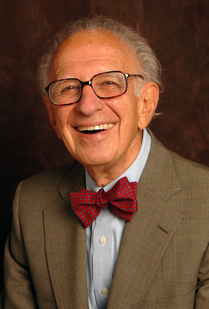 Kandel: I think what is really so important is, as you pointed out, that there was an interaction between science, literature, and arts that was really unusual. And this began with the School of Medicine, which had great leadership at that time. Under the leadership of a guy called Rokitansky who introduced modern scientific medical practice by developing clinical/pathological correlations to a more systematic way than it had ever been. He felt that when you listened to a patient’s heart and you hear an abnormal sound, you don’t know which valve it’s coming from or exactly what is the disorder of the valve. And so he collaborated with a clinician. And the clinician described the patient’s sounds from the heart and the lungs in great detail. But if the patient died, they collaborated together to do an autopsy on him to figure out exactly what valve was involved and how. And that gave rise to the scientific medicine we now practice. And Rokitansky realized that the truth is often hidden from the surface. And you have to go deep below the surface to get there.
Kandel: I think what is really so important is, as you pointed out, that there was an interaction between science, literature, and arts that was really unusual. And this began with the School of Medicine, which had great leadership at that time. Under the leadership of a guy called Rokitansky who introduced modern scientific medical practice by developing clinical/pathological correlations to a more systematic way than it had ever been. He felt that when you listened to a patient’s heart and you hear an abnormal sound, you don’t know which valve it’s coming from or exactly what is the disorder of the valve. And so he collaborated with a clinician. And the clinician described the patient’s sounds from the heart and the lungs in great detail. But if the patient died, they collaborated together to do an autopsy on him to figure out exactly what valve was involved and how. And that gave rise to the scientific medicine we now practice. And Rokitansky realized that the truth is often hidden from the surface. And you have to go deep below the surface to get there.  Correspondent: Sure. Well, let’s talk about Egon Schiele. His self-portraits in the book, many of which expressed, as you were saying here, this eroticism, this anxiety. In the case of Self-Portrait with Striped Armlets, it depicts him as a fool. He depicts himself as a fool. So his anxiety may very well evoke this fear in the beholder, or the viewer. But there’s a difference between what Schiele experienced and what he chose to express. So it’s possible that he may have exaggerated or distorted.
Correspondent: Sure. Well, let’s talk about Egon Schiele. His self-portraits in the book, many of which expressed, as you were saying here, this eroticism, this anxiety. In the case of Self-Portrait with Striped Armlets, it depicts him as a fool. He depicts himself as a fool. So his anxiety may very well evoke this fear in the beholder, or the viewer. But there’s a difference between what Schiele experienced and what he chose to express. So it’s possible that he may have exaggerated or distorted. Correspondent: The key element in assessing the relationship between art and neuroscience is the beholder. Now Semir Zeki has argued that the Kanizsa triangle, where we see these three…
Correspondent: The key element in assessing the relationship between art and neuroscience is the beholder. Now Semir Zeki has argued that the Kanizsa triangle, where we see these three…

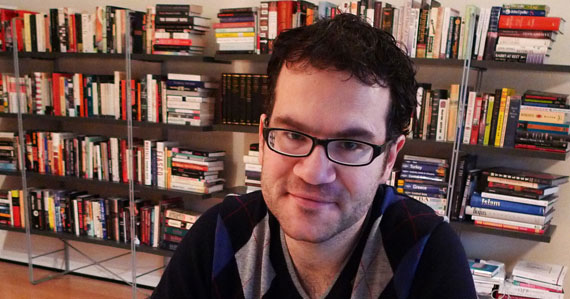
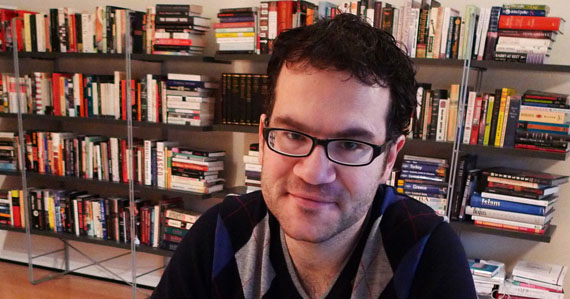

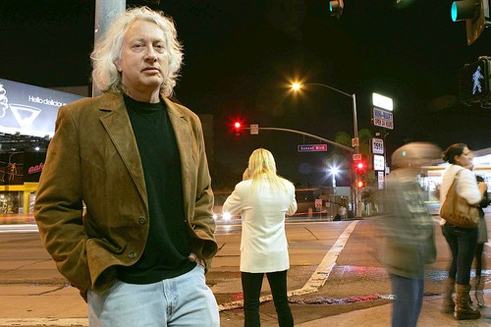

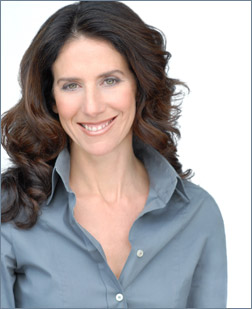 Correspondent: Let’s get into this. You point out that George McGovern is one of the key figures responsible for Democratic timidity in relation to the sexual counterrevolution. You suggest that McGovern losing his temper, telling a voter to kiss his ass — that was one factor. The really terrible decision he made involving ordering milk with a liver sandwich in a Jewish deli. Not exactly the smartest choice. There was also this idea that McGovern, because he encompassed this cultural radicalism and failed, that this was what encouraged the Democrats to backpedal. So I’m wondering to what degree is this political temperament and to what degree is this, I suppose, a cultural radicalism that Democrats are afraid of? I mean, 2004, you have Howard Dean’s famous scream. And even before that, everybody was like, “Wow, this guy’s finally standing up for progressivism.” I mean, it seems to me that if you have a situation where the Democratic presidential candidates are limited in what they can say and how they can act, that this kind of progressive idea of, say, supporting something like the Equal Rights Amendment, you’re almost not allowed to do that. So how did this state come to be and what solutions do we have for the future?
Correspondent: Let’s get into this. You point out that George McGovern is one of the key figures responsible for Democratic timidity in relation to the sexual counterrevolution. You suggest that McGovern losing his temper, telling a voter to kiss his ass — that was one factor. The really terrible decision he made involving ordering milk with a liver sandwich in a Jewish deli. Not exactly the smartest choice. There was also this idea that McGovern, because he encompassed this cultural radicalism and failed, that this was what encouraged the Democrats to backpedal. So I’m wondering to what degree is this political temperament and to what degree is this, I suppose, a cultural radicalism that Democrats are afraid of? I mean, 2004, you have Howard Dean’s famous scream. And even before that, everybody was like, “Wow, this guy’s finally standing up for progressivism.” I mean, it seems to me that if you have a situation where the Democratic presidential candidates are limited in what they can say and how they can act, that this kind of progressive idea of, say, supporting something like the Equal Rights Amendment, you’re almost not allowed to do that. So how did this state come to be and what solutions do we have for the future? 
 Anderson: If we can just get a little bit more of our own buying power to be recycled in our own communities, maybe we can bring those jobs numbers up. The other number is that black businesses are, by far, the greatest private employer of black people. Black unemployment, we know, is three times the national average of our white counterparts. Highest among any ethnic group. And in some places like Birmingham and Cleveland, we’re at black unemployment like 15, 16%. So maybe if we start supporting more black businesses that employ black people, we can stop black unemployment. So it was really just about making sure the conversation about the black situation in America is thorough and comprehensive. We can’t just keep talking about black unemployment and then not talk about black buying power and the fact that black businesses employ people and that none of our buying power is going to black businesses. So the numbers that we depended on — to get back to your question — you know, it’s just kind of known in our community how we don’t support each other. How if you walk up and down the street in a black neighborhood, none of the businesses there are black-owned except for funeral parlors, barber shops, and the braid salons. It’s just kind of known that most of the products on the shelves, none of the retailers in our community, none of the franchises are black. So we just kind of know that and joke about it. It hurts, but we just accept it. But it’s so hard to find data to bear that out. My roommate jokes about it. But we did find an interesting study — I think it was an economist, John Wray. Who did a study based out of DC that proved this horrible statistic about how long the dollar lives in different ethnic communities.* This statistic is used a lot in this conversation when people
Anderson: If we can just get a little bit more of our own buying power to be recycled in our own communities, maybe we can bring those jobs numbers up. The other number is that black businesses are, by far, the greatest private employer of black people. Black unemployment, we know, is three times the national average of our white counterparts. Highest among any ethnic group. And in some places like Birmingham and Cleveland, we’re at black unemployment like 15, 16%. So maybe if we start supporting more black businesses that employ black people, we can stop black unemployment. So it was really just about making sure the conversation about the black situation in America is thorough and comprehensive. We can’t just keep talking about black unemployment and then not talk about black buying power and the fact that black businesses employ people and that none of our buying power is going to black businesses. So the numbers that we depended on — to get back to your question — you know, it’s just kind of known in our community how we don’t support each other. How if you walk up and down the street in a black neighborhood, none of the businesses there are black-owned except for funeral parlors, barber shops, and the braid salons. It’s just kind of known that most of the products on the shelves, none of the retailers in our community, none of the franchises are black. So we just kind of know that and joke about it. It hurts, but we just accept it. But it’s so hard to find data to bear that out. My roommate jokes about it. But we did find an interesting study — I think it was an economist, John Wray. Who did a study based out of DC that proved this horrible statistic about how long the dollar lives in different ethnic communities.* This statistic is used a lot in this conversation when people  Correspondent: I know. No, this is all very good. And there’s a load of threads to start from here. Actually, I’m sure you’re familiar —
Correspondent: I know. No, this is all very good. And there’s a load of threads to start from here. Actually, I’m sure you’re familiar — 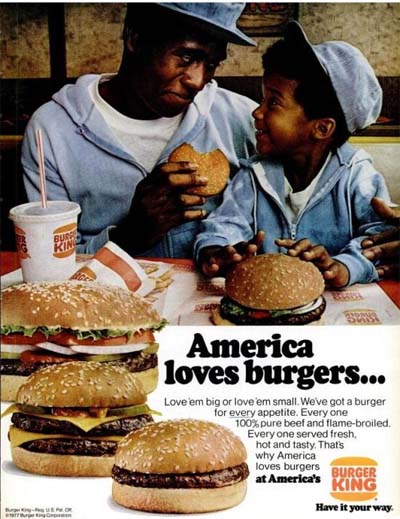 Anderson: The white man Charlie. But anyway, the book is really — if I’m yelling at anyone, it’s at black consumers. Because there’s a lot of history here that contributes to the bad situation we’re in. I’ll be really quick. A lot of it has to do with integration. Of course, we love what integration did in this country. Of course, we fought for it. But it had some really negative impact. Some deleterious impact into the black economy, if you will. Because we’re forced to, because we’re segregated, we built up our own businesses. We had a strong sense of entrepreneurship in our community. And we recycled our wealth. So that was just the fact. That was the way it was. And the University of Wisconsin
Anderson: The white man Charlie. But anyway, the book is really — if I’m yelling at anyone, it’s at black consumers. Because there’s a lot of history here that contributes to the bad situation we’re in. I’ll be really quick. A lot of it has to do with integration. Of course, we love what integration did in this country. Of course, we fought for it. But it had some really negative impact. Some deleterious impact into the black economy, if you will. Because we’re forced to, because we’re segregated, we built up our own businesses. We had a strong sense of entrepreneurship in our community. And we recycled our wealth. So that was just the fact. That was the way it was. And the University of Wisconsin 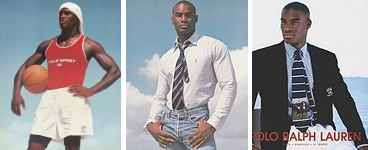 Anderson: Right. And this is a huge point that I have to contend with when I push this supply diversity franchise rediversity message into the community. And here’s how it goes when I’m talking to black folk who I’m trying to get to support black businesses. It should not be that tough of a fight, but it is. When I say this to them, they come at me, generally with stuff like “Well, we tried to Karriem [Beyah]’s grocery store. He didn’t have the thing that we wanted.” Or it wasn’t like going to our Jewel, the big grocery store chain around here. Or you can go to this black franchise. But I didn’t see a bunch of black employees there. Or how do I know Quiznos is a good franchise to be supporting? So I get a bit of a challenge. Then I say, “Well, you know what? How is that? I mean, what are you doing now?” Basically, we’re just out there supporting anybody. Not thinking about what the businesses are doing for us. Polo. I mean, Polo blew the lid off of black consumers. We have black Polo parties that we have for our kids. I mean, it’s just ridiculous how addicted we are to the Polo brand. I have nothing against Polo Ralph Lauren. But I did have a friend who works writing for the CFO of Polo, and I asked her to do some research for me. She’s a conscious consumer like me. HBS grad. Very well connected in the company. And she thinks they talked with the marketing folks, the procuring folks, everybody about buyer diversity. Do you do business? How do you invest in the black community? We have so much money coming in from the black community. And their answer to me was, “Well, our label comes out of Indonesia.” And it’s unbelievable. That’s the best we can do to reciprocate the loyalty that the black community’s giving you? So it’s like, “Yeah. Maybe.” And you’re totally right about the Quiznos thing. But the first answer to them is, “But you’re supporting Polo. And it’s not like you’re stopping in support of Polo.” And I’m not saying don’t support Polo. But if you’re so discriminating with how you spend your money, there’s a lot of things that we shouldn’t be doing that we ought to be doing.
Anderson: Right. And this is a huge point that I have to contend with when I push this supply diversity franchise rediversity message into the community. And here’s how it goes when I’m talking to black folk who I’m trying to get to support black businesses. It should not be that tough of a fight, but it is. When I say this to them, they come at me, generally with stuff like “Well, we tried to Karriem [Beyah]’s grocery store. He didn’t have the thing that we wanted.” Or it wasn’t like going to our Jewel, the big grocery store chain around here. Or you can go to this black franchise. But I didn’t see a bunch of black employees there. Or how do I know Quiznos is a good franchise to be supporting? So I get a bit of a challenge. Then I say, “Well, you know what? How is that? I mean, what are you doing now?” Basically, we’re just out there supporting anybody. Not thinking about what the businesses are doing for us. Polo. I mean, Polo blew the lid off of black consumers. We have black Polo parties that we have for our kids. I mean, it’s just ridiculous how addicted we are to the Polo brand. I have nothing against Polo Ralph Lauren. But I did have a friend who works writing for the CFO of Polo, and I asked her to do some research for me. She’s a conscious consumer like me. HBS grad. Very well connected in the company. And she thinks they talked with the marketing folks, the procuring folks, everybody about buyer diversity. Do you do business? How do you invest in the black community? We have so much money coming in from the black community. And their answer to me was, “Well, our label comes out of Indonesia.” And it’s unbelievable. That’s the best we can do to reciprocate the loyalty that the black community’s giving you? So it’s like, “Yeah. Maybe.” And you’re totally right about the Quiznos thing. But the first answer to them is, “But you’re supporting Polo. And it’s not like you’re stopping in support of Polo.” And I’m not saying don’t support Polo. But if you’re so discriminating with how you spend your money, there’s a lot of things that we shouldn’t be doing that we ought to be doing. 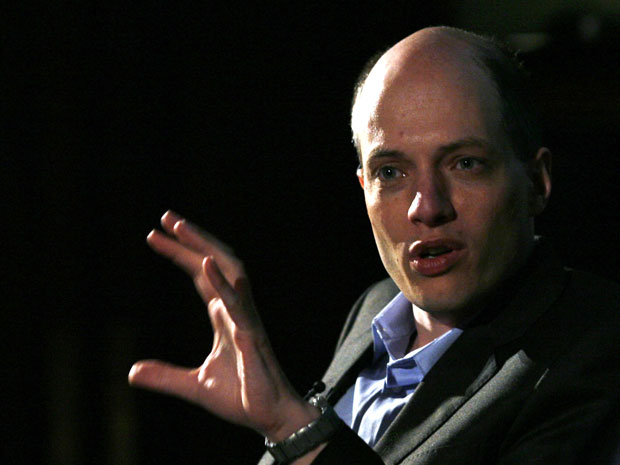

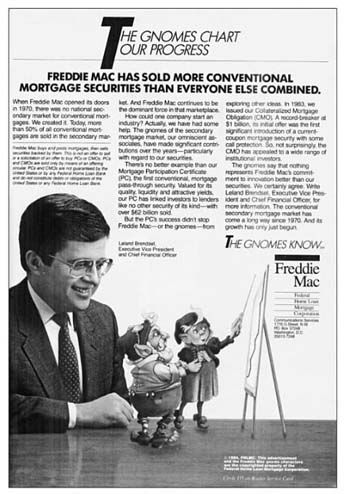 Correspondent: You start this book with a late 19th century image of the fat and prosperous man who sold in cash and the skinny man who sold on credit. I think that more than a century later, it’s safe to say that those roles have now been flip-flopped. You also write, “In the era of the CMO, the smart bank could be like the Skinny Man, its vaults nearly empty, with a pile of IOUs in a nearby basket.” I have to ask you, Louis. You are the debt man. Why were so many people willing to place their faith in the supernatural qualities of the collateralized mortgage obligation? Your book describes a Freddie Mac ad that appeared in a 1984 issue of the American Bankers Association Journal which contained magical gnomes. And they frightened me when I saw that picture.
Correspondent: You start this book with a late 19th century image of the fat and prosperous man who sold in cash and the skinny man who sold on credit. I think that more than a century later, it’s safe to say that those roles have now been flip-flopped. You also write, “In the era of the CMO, the smart bank could be like the Skinny Man, its vaults nearly empty, with a pile of IOUs in a nearby basket.” I have to ask you, Louis. You are the debt man. Why were so many people willing to place their faith in the supernatural qualities of the collateralized mortgage obligation? Your book describes a Freddie Mac ad that appeared in a 1984 issue of the American Bankers Association Journal which contained magical gnomes. And they frightened me when I saw that picture.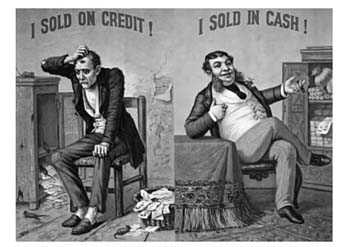 Hyman: Exactly. So you need to understand that it used to be that it was very difficult to get loans in America of any kind. And that’s why I start the book off with that picture. Because the picture of the Skinny Man, who is nervous and afraid because he had lent on credit to his customers in his store. It was a picture that would be hung in a 19th century store. And the reason I start with that is because I think more than a graph, we are all besieged by numbers these days. More than a graph, it gets at the different mentality, the different practice of lending in the 19th century. That lending was something that was not profitable. It was something that in terms of cash loans wasn’t even legal. And yet today it’s the center of our capitalism. So how did that transformation happen?
Hyman: Exactly. So you need to understand that it used to be that it was very difficult to get loans in America of any kind. And that’s why I start the book off with that picture. Because the picture of the Skinny Man, who is nervous and afraid because he had lent on credit to his customers in his store. It was a picture that would be hung in a 19th century store. And the reason I start with that is because I think more than a graph, we are all besieged by numbers these days. More than a graph, it gets at the different mentality, the different practice of lending in the 19th century. That lending was something that was not profitable. It was something that in terms of cash loans wasn’t even legal. And yet today it’s the center of our capitalism. So how did that transformation happen?  Hyman: People forget. They forgive. And they think that it would be different this time. Because they were tradeable in the secondary market, which the ones in the 1920s were not. They were born toxic almost in the 1920s. But they thought, “Well, these will be fine. They’ll be like FHA loans.” Which had worked for several generations. And actually they worked fine. The securitization worked fine for a long time. From the mid-1970s on for about thirty years. They worked fine.
Hyman: People forget. They forgive. And they think that it would be different this time. Because they were tradeable in the secondary market, which the ones in the 1920s were not. They were born toxic almost in the 1920s. But they thought, “Well, these will be fine. They’ll be like FHA loans.” Which had worked for several generations. And actually they worked fine. The securitization worked fine for a long time. From the mid-1970s on for about thirty years. They worked fine.
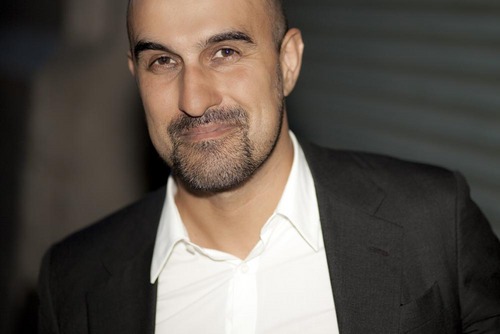
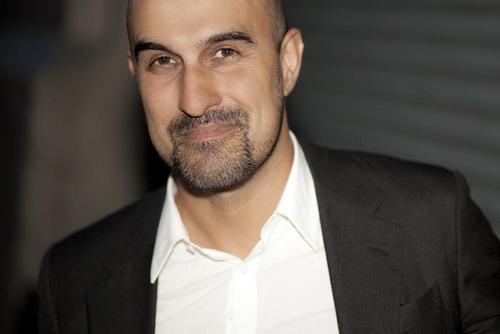




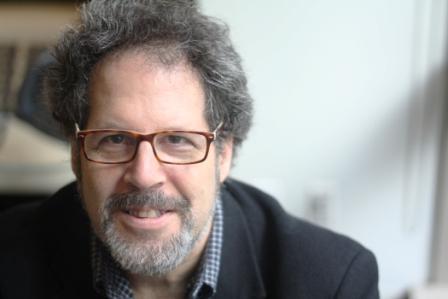




 Scroggings: Well, the idea that Islam is responsible for the oppression of women is a very old idea in the West. It goes back hundreds of years. So it’s got a lot of roots here. So when somebody says that, it basically coincides with what people believe. So that’s one reason. I think with Ayaan Hirsi Ali, what really has made her so popular is her incredibly personal story. It’s very inspiring how she tells it. Her coming to the West. Becoming converted to Western ideas. Shaking off Islam. And then being threatened with death for speaking out against it. A lot of people feel very sympathetic to her and feel inspired by her because of that. So I think that’s really why she’s gained such an influential backing. And as to why she got named the 100 Most Influential People, that came right after the murder of Theo van Gogh. And I think it was sort of a sympathy vote on Time Magazine’s part. Because prior to all this, she was a very new junior legislator in the Dutch Parliament. Not somebody who would normally be considered one of the most influential people in the world.
Scroggings: Well, the idea that Islam is responsible for the oppression of women is a very old idea in the West. It goes back hundreds of years. So it’s got a lot of roots here. So when somebody says that, it basically coincides with what people believe. So that’s one reason. I think with Ayaan Hirsi Ali, what really has made her so popular is her incredibly personal story. It’s very inspiring how she tells it. Her coming to the West. Becoming converted to Western ideas. Shaking off Islam. And then being threatened with death for speaking out against it. A lot of people feel very sympathetic to her and feel inspired by her because of that. So I think that’s really why she’s gained such an influential backing. And as to why she got named the 100 Most Influential People, that came right after the murder of Theo van Gogh. And I think it was sort of a sympathy vote on Time Magazine’s part. Because prior to all this, she was a very new junior legislator in the Dutch Parliament. Not somebody who would normally be considered one of the most influential people in the world.
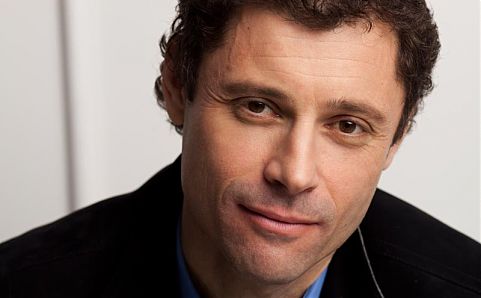
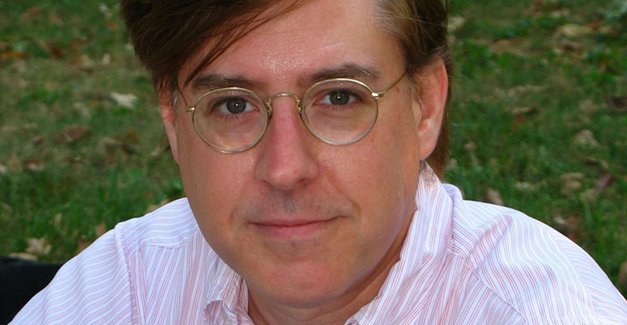
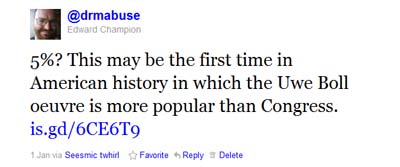
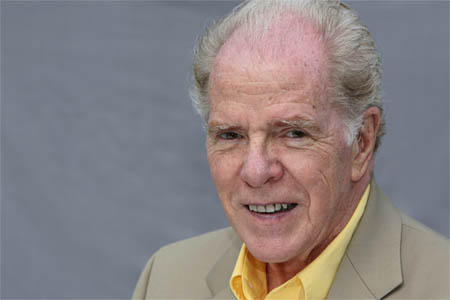
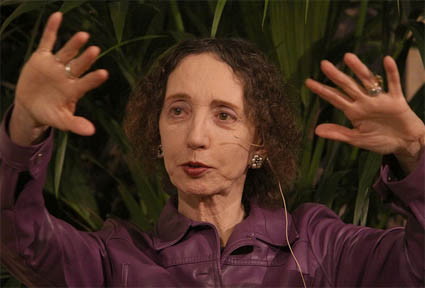


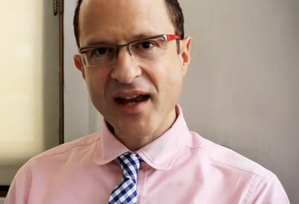
 Correspondent: Well, let me try to get on this from another angle. You had mentioned very early on — and I was actually going to bring this up too — the photos that Annie Leibovitz took of Susan Sontag. The Osama bin Laden execution.
Correspondent: Well, let me try to get on this from another angle. You had mentioned very early on — and I was actually going to bring this up too — the photos that Annie Leibovitz took of Susan Sontag. The Osama bin Laden execution. 